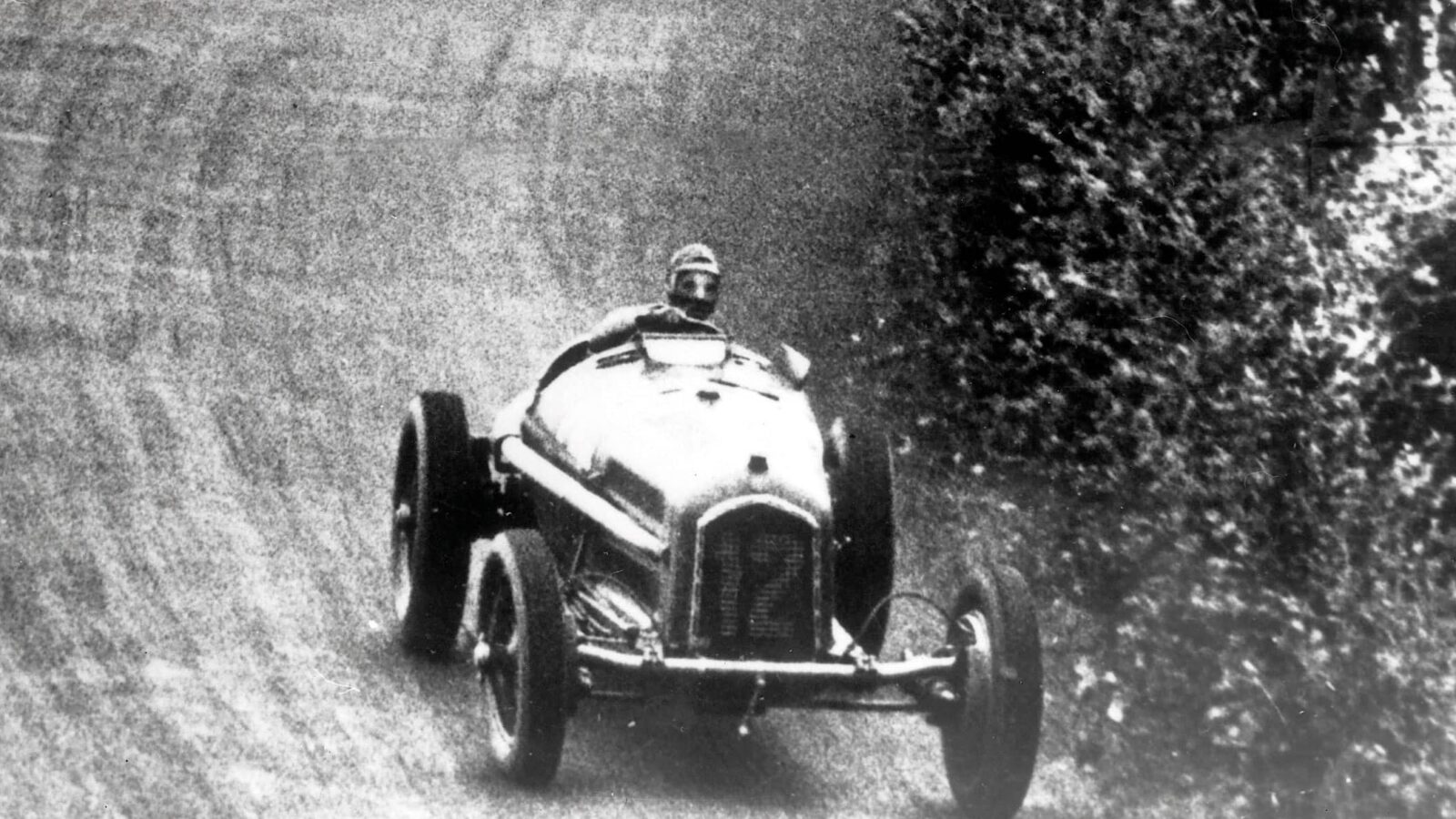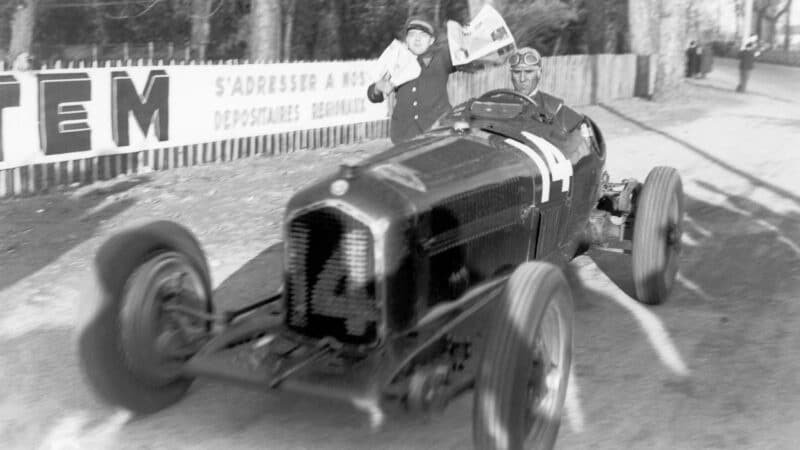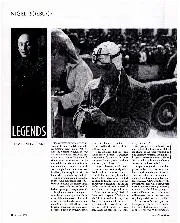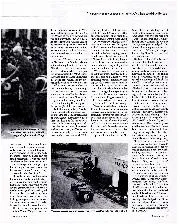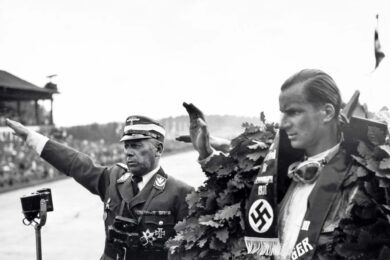So when Tazio Nuvolari won the German Grand Prix at the hallowed Nürburgring in 1935 at the wheel of the Scuderia Ferrari’s beautiful but obsolete Alfa Romeo Tipo B, it represented a serious blow to National Socialist pride. Luck played a part when the race-leading Mercedes of Manfred von Brauchitsch blew a tyre on the last lap and handed the race to Nuvolari, who had been entertaining the crowd of 330,000 by “driving like a demon”, in the words of The Autocar’s racing correspondent.
Legend has it that in the expectation of a home victory, the public address system was equipped only with a recording of Deutschland Über Alles, and that Nuvolari had to produce his personal copy of the Marcia Reale to be played in honour of his victory. The Italian anthem rang particularly hollow in the ears of Korpsführer Adolf Hühnlein, the sour-faced head of German motor sport, a veteran of the First World War and of the unsuccessful 1923 ‘beer-hall putsch’ in Munich.
Five months later, a second reverse for the Third Reich’s sporting heroes came in very different surroundings when Germany’s footballers travelled to play England at White Hart Lane – a poignant choice, given the traditionally strong Jewish following of the ground’s home club, Tottenham Hotspur – in a match that had been the subject of controversy since its announcement. A headline in a London evening newspaper read “JEWS UP IN ARMS” and the Trades Union Congress unsuccessfully petitioned the government to call the whole thing off. England played poorly against opponents concentrating almost wholly on defence, but managed a 3-0 victory.
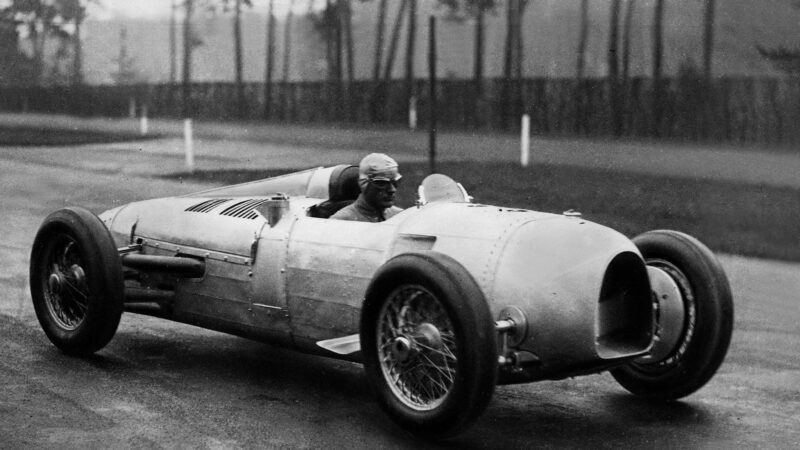
Hans Stuck in Auto Union’s V16-powered P-Wagen, the team one half of the Third Reich’s assault on motor sport
ulstein bild via Getty Images
When the teams met again in Berlin in May 1938, two months after the Anschluss, the British ambassador had to plead with the England players to give the Nazi salute during the German national anthem. Despite misgivings, they complied before thrashing the home side 6-3 in front of a crowd of 110,000.
In the Olympic summer of 1936 the Führer’s countenance was darkened by the feats of the USA’s James ‘Jesse’ Owens, who took the gold medals in the men’s 100m, 200m, 4x100m relay and the long jump. This affront to the Nazi doctrine of the racial inferiority of black people was impossible to ignore. But not all Germans shared Hitler’s prejudice. Luz Long, the silver medallist in the long jump, might have been the very image of the Ayran superman, but he and Owens left the arena with arms linked and their friendship survived even Long’s battlefield death in 1943, in the form of continued correspondence between Owens and his erstwhile opponent’s family.
